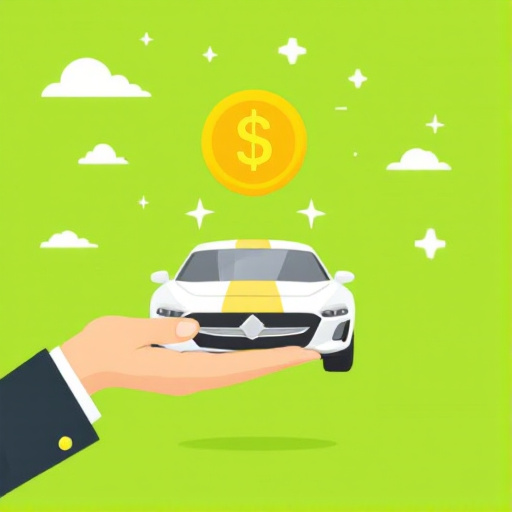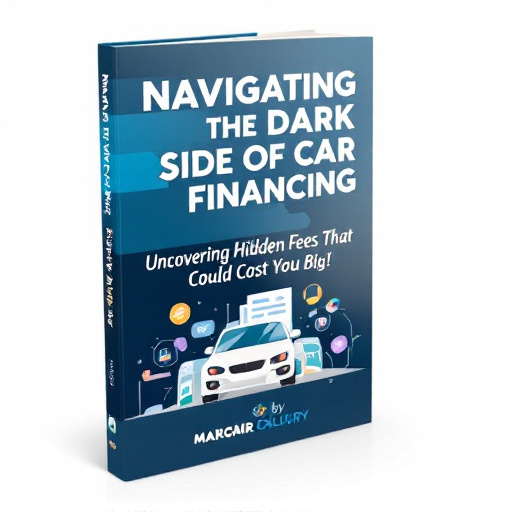Related Articles
- Unveiling the Unthinkable: How Your Social Media Posts Could Impact Your Car Insurance Premiums
- "From Showroom to Social Media: How Dealerships are Becoming Digital Storytellers in 2023"
- "From Showroom to Stream: The Rise of Virtual Reality Test Drives at Dealerships"
- Revving Up Sales: How Virtual Reality is Transforming the Dealership Experience for Shoppers and Sellers Alike
- Selling Experiences: How Dealerships Can Transform into Immersive Automotive Entertainment Hubs
- The Surprising Impact of Your Credit Card Habits on Car Financing: What You Didn't Know!
The Psychology of Car Financing: How Your Emotions Drive Negative Financial Decisions
The Psychology of Car Financing: How Your Emotions Drive Negative Financial Decisions
Car financing often tugs at our emotions, leading to decisions that can negatively impact our financial well-being. By understanding the psychology behind these emotional drives, we can make more informed choices when purchasing our next vehicle.
The Emotional Rollercoaster of Car Buying
Ever walked into a dealership feeling like you were just a kid in a candy store? That initial thrill can quickly morph into stress. Car buying is hardly just a transaction; it is a journey packed with emotional highs and lows. Did you know that 70% of car buyers report feeling anxious during the financing process? (Source: Edmunds) This anxiety often clouds our judgment, leading us to make hasty decisions that might not be financially sound.
Understanding the Emotional Triggers
As a 30-year-old writer who has seen many of my friends navigate this labyrinth, I can confidently attest to the intertwined nature of emotions and financial decisions. Anxiety, greed, excitement, and even fear can all play a part in shaping our choices. Consider the 'fear of missing out' (FOMO), which often leads buyers to rush into a financing deal rather than doing the necessary homework.
Statistics that Speak Volumes
According to a report by Experian, the average monthly car payment for new vehicles as of 2023 hovered around $700. Not only that, but 26% of buyers financed vehicles that exceeded their budgets due to emotional impulsiveness. Taking a step back and examining the numbers can often provide clarity that emotions will cloud.
Case Studies: Learning from Real Scenarios
Let's consider Jane. A 25-year-old marketing professional, Jane loved the feeling of driving a brand-new car off the lot. However, her excitement led her to overlook the financing options presented, resulting in a dire 72-month loan at a 7% interest rate. A few months in, the excitement faded, replaced by regret as she felt the squeeze of an inflated car payment. Jane’s story is all too common; excitement can inhibit practical considerations.
Conversely, think of Tom, who took a measured approach at 38. He spent several weekends researching makes and models, calculating total costs including interest payments, insurance, and maintenance. By the time he made the purchase, he felt empowered, not anxious. His financial security allowed him to enjoy the car without the burden of debt hanging over him.
How Marketing Plays into Emotions
Automobile manufacturers and dealerships spend enormous amounts on marketing, often leveraging psychological tactics to drive sales. Take, for instance, the strategic use of phrases like "limited time offer" or “exclusive deal.” These trigger a sense of urgency, making buyers feel they must act quickly or risk losing out. A Consumer Reports survey found that 80% of respondents reported experiencing pressure during their dealership visits, which resulted in rushed decisions.
The Dangers of Overcommitment
Feeling the pressure can lead to overwhelming financial commitments. According to the Federal Reserve, nearly 1 in 5 car loans could be considered "subprime," indicating borrowers are paying high-interest rates due to their financial histories. Resulting defaults aren’t just numbers; they represent real people, some of whom are forced to turn in their vehicles, creating further financial and emotional distress.
Bringing Logic Back into Play
It's vital to take a step back. Aim for a “cool-off” period where you detach from the initial excitement and reassess your options. Take a calculator and tally up your monthly expenses versus your income. Understanding your budget can serve as a powerful antidote to emotional pressures. Calculating how a new car impacts your overall finances will empower you to make a decision grounded in reality rather than emotion.
Additionally, consider options like pre-approved financing. By approaching your dealer with financing ready, you place yourself in a better negotiating position, reducing the chances of succumbing to emotional pressures.
Building Financial Literacy
Mental barriers often stem from a lack of understanding. Enhancing your financial acumen can put you in a stronger negotiating position at any dealership. Resources like personal finance books, online courses, and financial blogs can be exceptional for boosting your knowledge. Even spending time learning about auto loans and interest rates can mitigate bad impacts of emotions!
Creating a Checklist
Before you even step foot in a dealership, creating a checklist can serve as a guiding light through the fog of emotions. Include essential points like:
- Budget assessment
- The impact of financing options and rates
- Understanding the total cost of ownership
- Asking about warranties and maintenance plans
An ordered approach can arm you against taking impulsive actions that stem from emotional volatility.
How Friends and Family Influence Decisions
Everyone knows the power of social influence, right? Family and friends often play a significant role in car buying decisions, sometimes making the experience more stressful. A study from the Journal of Consumer Research revealed that individuals are 60% more likely to make a purchase when they perceive peer approval. Sometimes, this leads to choices based on image rather than financial solvency.
When Lou bought a stylish but unnecessary luxury SUV just to impress his friends, he went deep into debt. Friends cheering him on felt great in the moment, but now Lou spends angst-ridden nights worrying about his monthly obligations. Your circle may inadvertently pressure you into spending beyond your means without considering long-term effects.
The ‘New Car Smell’ Phenomenon
Ah, the scent of a fresh car! It’s a dopamine hit that can convince us we've made a sound investment. Consumer psychology experts note that sensory experiences play a massive role in consumer choices, particularly in the car market. The powerful effects of positive emotional associations often diminish our ability to recognize the surrounding financial consequences. This scent, coupled with the flashy features of a new car, can lead consumers to overlook crucial financing details.
Rethinking the Value of a Car
Shift your mindset about the car you're buying. Isn’t a car just a tool to get you from point A to point B? Assigning less emotional significance to a vehicle can buffer against poor financial decisions. A simple thought exercise is to ask yourself, "Am I buying this car because I need it, or because I want it?" This distinction is crucial in avoiding emotional pitfalls.
Seek Outside Help
Sometimes, an external viewpoint can do wonders for your financial mental state. Enlist a trusted friend who is savvy with finances, or even better, a financial advisor. They can help you disentangle the emotional threads of your decision-making process and offer practical guidance. When you're in the thick of emotions, another set of eyes provides clarity.
Final Thoughts
Car financing is an emotional experience that can lead to regrettable decisions. Yet by increasing self-awareness and understanding your emotions, you can streamline the buying process to ensure it aligns with your financial goals. The interplay of emotions in the car buying process is undeniable, but equipping yourself with the right tools can help pave the way for more sound decisions.
In the immortal words of Steve Jobs, “You've got to find what you love. And that is as true for your work as it is for your lovers.” So, when making a car purchase, ensure it's one you genuinely love for all the right reasons — primarily financial ones!





